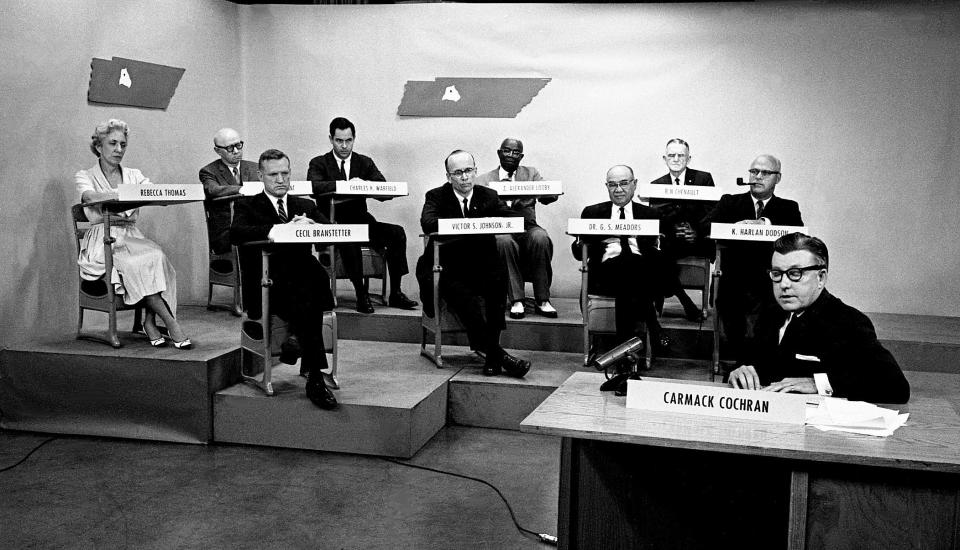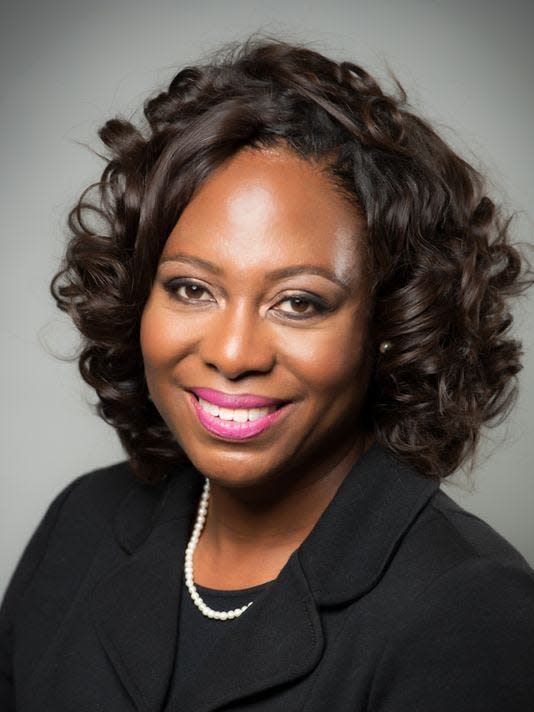Voters supported consolidated Metro Nashville to ensure fairness for all | Opinion
- Oops!Something went wrong.Please try again later.
History matters. It shapes who we are, for better or worse. Sometimes, when we try to rewrite history, we do so at our peril.
Today, legislators seek to rewrite the history that is the very foundation of Metro Nashville government. I challenge them to pause briefly, take a breath, and be mindful of the moment in time when the Metropolitan Government of Nashville Davidson County came into being.
The 1950s and 1960s, on the heels of World War II, were times of rapid growth in Nashville. Peace brought prosperity to many (if not all) young families and with it home ownership, a brand-new car, a good job downtown for Dad.
With growth came the need for more services — better roads and traffic control, police and fire protection, healthier water and sewer services, airports with service to the rest of the nation and even the world. And public schools.
Hear more Tennessee Voices: Get the weekly opinion newsletter for insightful and thought provoking columns.
Consolidation came after court-ordered desegregation
At the time, Nashville had two school systems: City and county. And Black and white students went to separate schools. Black kids could only attend those city schools designated as “colored.”

Across the nation, racially segregated schools like Nashville’s drew the laser focus of the Federal courts. In 1957, Federal Judge William Miller of Nashville ordered the city to begin desegregating its schools, one grade at a time. Later, he would order the desegregation of Davidson County Schools.
Also in 1957, a group of citizens were commissioned to figure out how Nashville could consolidate its government — including schools. It wasn’t a new idea. It was seriously studied in 1952, and in 1953, none other than the Tennessee General Assembly amended the State Constitution to allow for local government consolidation, as approved by a vote of the people.
While some Black leaders in Nashville mistrusted the idea, iconic attorney Z. Alexander Looby, elected to the City Council in 1951, felt otherwise, and he was among several Blacks who sat on the 1957 charter commission. Looby’s reasoning: As the city grew, services would grow, too, and those improvements could and should benefit all Nashvillians.
Sign up for Latino Tennessee Voices newsletter:Read compelling stories for and with the Latino community in Tennessee.
Sign up for Black Tennessee Voices newsletter:Read compelling columns by Black writers from across Tennessee.
Two votes; two different results
In June 1958, a consolidation plan went before the voters. It passed in the city but failed in the county.
City-county consolidation went before the voters again, in 1962 — strongly opposed by Mayor Ben West and the conservative Nashville Banner. But this time, it was approved – as required by the State Constitution – on the vote of the people of Nashville and Davidson County.
Because of Looby and others, the voters approved a Metro Council with 40 seats, so that African Americans would have fair and adequate representation. So that councilmembers would represent constituencies that are manageable. So that voters would not be ignored. So that special interests would not be prioritized over citizens’ needs
Metro became a reality on April 1, 1963, with County Court Judge Beverly Briley sworn in as mayor along with a Metro Council that included Attorney Looby, Robert Lillard, Mansfield Douglas, John Driver, and Harold Love Sr. — all African Americans.
Lawmakers try to rewrite history at their own peril
Metro government didn’t come about in a vacuum. It was created at a moment in history when fairness was being forged for all Nashvillians — indeed all Americans. At lunch counters, in public restrooms, on city buses, and in the schools, equal dignity was demanded and granted, even if grudgingly.

Fairness is part of our history. It is part of who we are, as Blacks and whites alike.
I beseech the members of the 113th General Assembly: Be mindful of the history. Be mindful of how Z. Alexander Looby and others reached up and supported each other at a special moment in time.
And if we rewrite that moment, that part of our history, it could be the beginning of a turning back in the ability of African Americans and other minority groups to participate fairly in local government.
Karen Johnson, the first woman and the first African American elected as Nashville Davidson County Register of Deeds, is in her second term as Register. She was elected twice to the Metro Council and once to the Metro School Board and was appointed to the Metro Boards of Zoning Appeals and Parks and Recreation.
This article originally appeared on Nashville Tennessean: Voters supported consolidated Metro Nashville to ensure fairness

